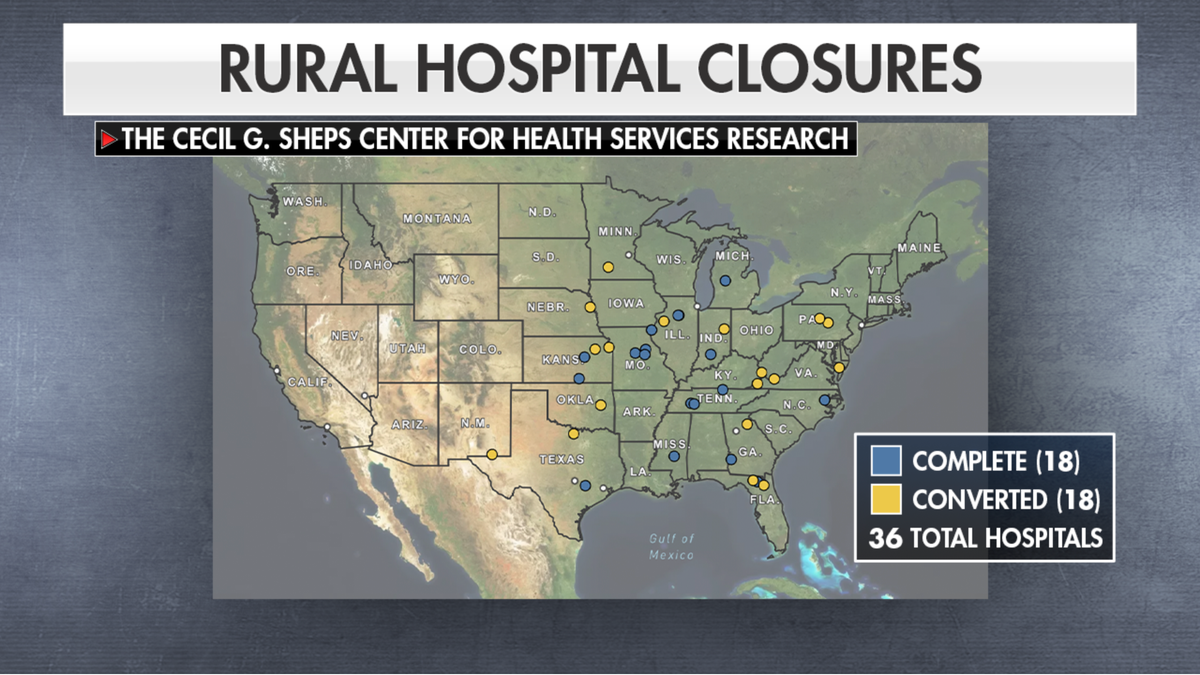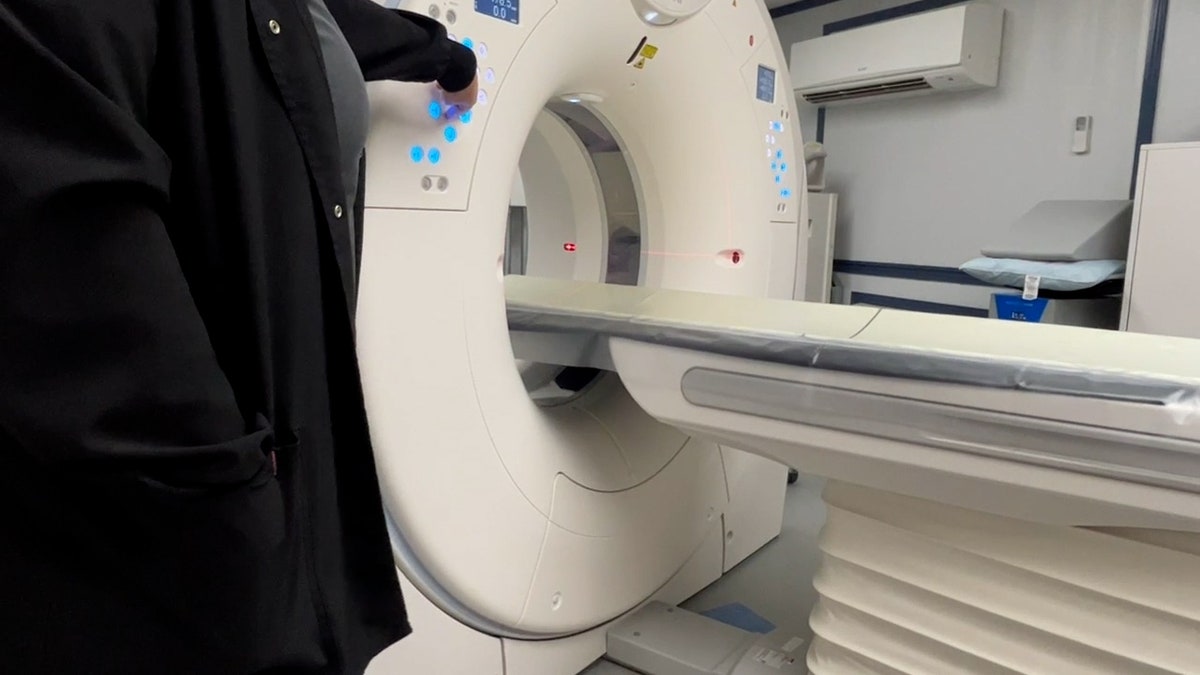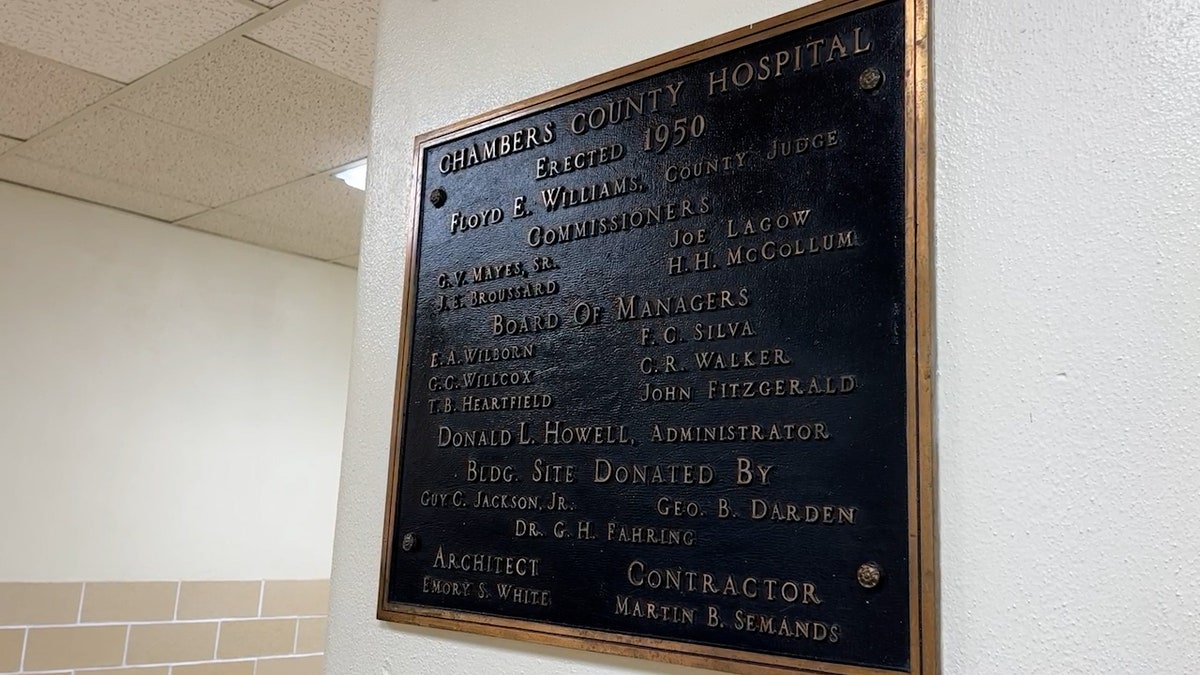The National Rural Health Association says costs for hospitals have gone up and funding for rural hospitals has gone down, because COVID-19 funds are no longer a factor. The emergency funds helped many hospitals that were at risk of closing before the pandemic to keep their doors open through 2020.
RURAL NORTH CAROLINA HOSPITAL 11TH FORCED TO SHUT DOWN, CHANGE SERVICES THIS YEAR
Robert Pascasio is the CEO of OmniPoint Health Hospital in Anahuac, Texas. He says rural hospitals are struggling to maintain their operations after dealing with higher costs and labor shortages.
“COVID increased costs for all of us across the board. Labor costs are up, substantially. Supply costs are up, substantially,” Pascasio said. “We’re still experiencing shortages. A lot of folks got out of healthcare as a result of COVID.”
Now, COVID funds that kept many rural hospitals open during the pandemic have ended, resulting in the closure of 18 rural hospitals in addition to 18 that no longer offer in-patient care since the funding stopped over a year ago.

BIPARTISAN LAWMAKERS EYE SOLUTIONS FOR RURAL MENTAL HEALTH CRISIS
Carrie Cochran-McClain of The National Rural Hospital Association says many hospitals across the country are now at risk of closing.
“We have up to a third of rural hospitals that are vulnerable to closure,” McClain said. “Rural hospitals are finding themselves in worse conditions than when they went into the pandemic and when they received those funds.”
Pascasio says he has worked hard with the local government entities to ensure OmniPoint’s doors stay open.

“It’s hard: finding staff, moving forward with getting the facilities staffed completely and with the right kind of folks, and the costs that go with that. It was nice while we had it — the funding we received. But, the costs haven’t gone away, while the funding has,” Pascasio said.
WITH PUBLIC HEALTH EMERGENCY OVER, FUNDING FOR FEDERAL PROGRAM TO RECRUIT DOCTORS MAY BE AT RISK
He says supplemental funding has helped them keep their doors open.

“There’s hardly a day that goes by that I don’t read about some hospital somewhere closing, because they just don’t have the funding,” Pascasio said. “If not for the supplemental funds, we may be one of the ones that folks were reading about going away.”
He also notes that rural hospitals are typically the largest employers in their areas. So, the majority of jobs in these rural areas are eliminated when the hospitals close.
Read the full article here